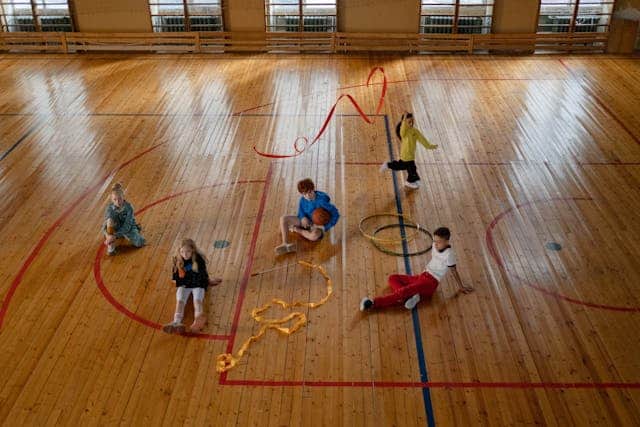
Validity and reliability of subjective methods to assess sedentary behaviour in adults: a systematic review and meta-analysis
June 26, 2020
Impact of the COVID-19 virus outbreak on movement and play behaviours of Canadian children and youth: a national survey
July 7, 2020A paper titled “Change and determinants of total and context specific sitting in adults: A 7-year longitudinal study” was recently published in the Journal of Science and Medicine in Sport. A summary of the paper, author affiliations, and citation details are below. The full-text article can be accessed here.
ABSTRACT
Objectives
To assess the stability and determinants of total and context specific sitting in a follow-up of adults.
Design
Longitudinal study.
Methods
Participants in the DILGOM cohort (n = 3735, men 45%), reported daily sitting in five contexts (work-related, in vehicle, at home by the TV, at home at the computer, and elsewhere) in 2007 and 2014. Sociodemographic background, lifestyle and health were assessed in 2007. Total sitting comprised the sum of context specific sitting. Changes in, and determinants of context specific sitting, stratified by baseline age into young middle-aged (<53 years); late middle-aged (53–68 years) and older-aged (>68 years) were estimated by generalized linear mixed models.
Results
In 2007, total daily sitting was 7 h 26 min, 6 h 16 min, and 6 h 3 min in young middle-aged, late middle-aged and older-aged groups, respectively. Over 7 years, total sitting decreased on average by 26 min. Sitting at the computer increased by 7–17 min. The late middle-aged group also increased sitting by the TV, and decreased total, work-related, vehicle and elsewhere sitting. Occupational status determined context specific sitting, but somewhat differently in young and late middle-aged groups. Poor self-rated health determined less work-related and more sitting by the TV in the young, whereas good health determined less work-related sitting in the late middle-aged group.
Conclusions
Self-reported sitting is a fairly stable behavior, with the exception for the late middle-aged group, where all context specific and total sitting changed significantly. Occupational status and health determined changes in sitting; however, somewhat differently by age group.
Practical implications
- A population approach to reduce sitting is recommended because sitting is a fairly stable behavior.
- Transfer to retirement imposes changes to sitting but further studies are needed to understand in more detail the compensation of work sitting by other daily activities.
- It is important to intervene in excess sitting in those with poor health in the middle age.
- Intervention programs could launch less sedentary ways of screen-based activities, as sitting at the computer at home is increasing across the population.
Authors and Affiliations
Heini Wennmana, Tommi Härkänena, MariaHagströmerb,c, PekkaJousilahtid, TiinaLaatikainend,e,f, Tomi Mäki-Opasg, Satu Männistöd, Hanna Tolonena, Heli Valkeinenh, Katja Borodulina,i.
a Public Health Evaluation and Projection Unit, The Finnish Institute for Health and Welfare, Finland
b Department of Health Promoting Science, Sophiahemmet University, Sweden
c Department of Neurobiology, Care Sciences and Society, Karolinska Institutet, Sweden
d Public Health Promotion Unit, The Finnish Institute for Health and Welfare, Finland
e Institute of Public Health, University of Eastern Finland (UEF), Finland
f Joint Municipal Authority for North Karelia Social and Health Services (Siun sote), Finland
g Department of Social Sciences, University of Eastern Finland (UEF), Finland
h Ageing, Disability and Functioning Unit, The Finnish Institute for Health and Welfare, Finland
i Age Institute, Finland
Citation
Wennman, H., Härkänen, T., Hagströmer, M., Jousilahti, P., Laatikainen, T., Mäki-Opas, T., Männistö, S., Tolonen, H., Valkeinen, H., & Borodulin, K. (2020). Change and determinants of total and context specific sitting in adults: A 7-year longitudinal study. Journal of Science and Medicine in Sport, 23(6), 596–602. https://doi.org/10.1016/j.jsams.2019.12.015
PMID: 31928882




